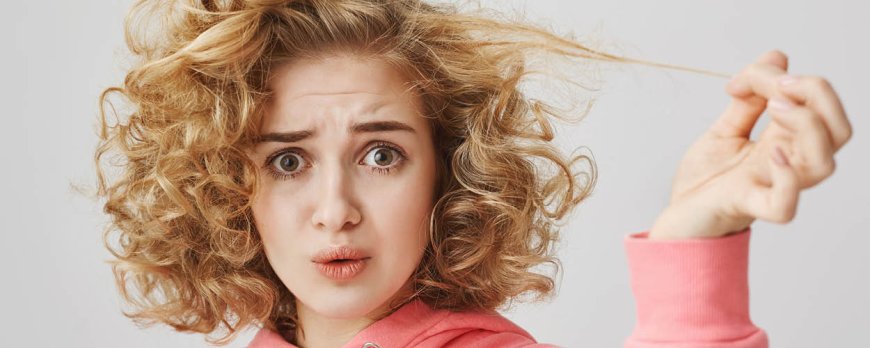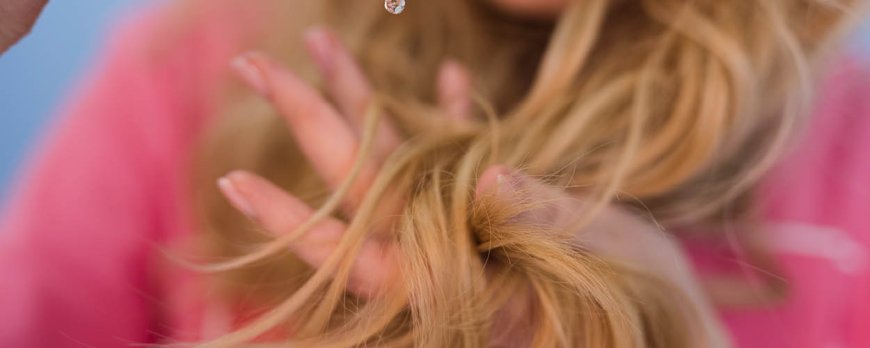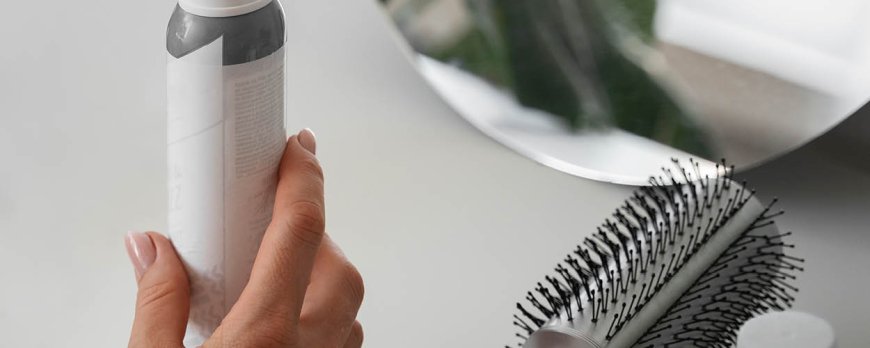What Vitamin Deficiency Causes Hair Loss?
Explore the answer to 'What vitamin deficiency causes hair loss?' in our comprehensive guide, tackling nutritional factors affecting hair health.

What Vitamin Deficiency Causes Hair Loss?
Hair loss can often be linked to certain vitamin deficiencies, which are crucial for maintaining healthy hair growth.
Key Takeaways:
- Vitamin D deficiency can contribute to hair loss as it is essential for hair follicle growth.
- Vitamin B12 deficiency can disrupt DNA synthesis and red blood cell production, both important for hair growth.
- Iron deficiency can cause hair loss due to a lack of oxygen and nutrients reaching the hair follicles.
- Zinc deficiency can interfere with hair synthesis and lead to hair loss.
- Vitamin E deficiency can affect hair growth as it acts as an antioxidant and reduces inflammation in the scalp.
The Role of Vitamin D in Hair Loss
Vitamin D plays a vital role in hair follicle growth, and its deficiency has been associated with hair loss. Hair follicles require adequate levels of vitamin D to function optimally and promote healthy hair growth. When there is a deficiency of vitamin D, the hair follicles can become dormant, resulting in hair thinning and even hair loss.
Vitamin D deficiency is a common problem, especially in regions with limited sunlight exposure. Sunlight is the primary source of vitamin D synthesis in the body, and insufficient exposure can lead to low levels of this essential vitamin. In addition, certain lifestyle factors, such as spending most of the time indoors or consistently wearing sunscreen, can further contribute to vitamin D deficiency.
Addressing vitamin D deficiency is crucial for individuals experiencing hair loss. Increasing sun exposure, when safe and within moderation, can help boost vitamin D levels naturally. However, it is important to strike a balance between sun exposure and protecting the skin from harmful UV rays.
In cases where natural sun exposure is not sufficient, supplementation may be necessary. Consulting with a healthcare professional can help determine the appropriate dosage and duration of vitamin D supplementation based on individual needs. It is also important to note that vitamin D supplementation should be done under supervision, as excessive levels can have adverse effects.
Summary:
- Vitamin D deficiency is associated with hair loss
- Low levels of vitamin D can lead to hair follicle dormancy
- Insufficient sunlight exposure and certain lifestyle factors contribute to vitamin D deficiency
- Addressing vitamin D deficiency through safe sun exposure and supplementation is crucial for healthy hair growth

Vitamin B12 and Hair Loss
Insufficient levels of vitamin B12 can disrupt hair growth due to its role in DNA synthesis and red blood cell production. B12, also known as cobalamin, is necessary for the proper functioning of hair follicles and the production of healthy hair strands.
When the body lacks vitamin B12, the hair follicles may become weak and brittle, leading to hair loss. Additionally, B12 deficiency can result in decreased red blood cell production, which means less oxygen and nutrients are delivered to the scalp and hair follicles.
Common symptoms of vitamin B12 deficiency:
- Excessive hair shedding
- Thinning hair or bald patches
- Pale or yellowish skin
- Weakness and fatigue
- Tingling or numbness in the hands or feet
If you suspect a vitamin B12 deficiency may be contributing to your hair loss, it is important to consult with a healthcare professional for a proper diagnosis. They can perform a blood test to measure your B12 levels and recommend suitable treatment options.
Iron Deficiency and Hair Loss
Inadequate levels of iron in the body can result in hair loss since hair follicles require oxygen and nutrients for healthy growth. Iron plays a crucial role in delivering these essential elements to the hair follicles, and a deficiency can lead to weakened hair shafts and increased hair shedding. If left untreated, iron deficiency can contribute to progressive hair thinning and even baldness.
When the body lacks sufficient iron, it prioritizes sending oxygen and nutrients to vital organs, leaving the hair follicles with limited supply. As a result, the hair growth cycle becomes disrupted, leading to hair follicles entering a resting phase prematurely. Over time, this can result in hair loss.
The symptoms of iron deficiency can vary but may include fatigue, weakness, pale skin, and brittle nails in addition to hair loss. It is essential to consult a healthcare professional for a proper diagnosis if you suspect iron deficiency as the cause of your hair loss.
Treatment for iron deficiency typically involves iron supplementation and dietary changes. Incorporating iron-rich foods into your diet, such as lean meats, leafy green vegetables, and fortified cereals, can help increase iron levels. Additionally, taking iron supplements as prescribed by your healthcare provider can help restore optimal iron levels and may promote hair regrowth in cases where iron deficiency is to blame for the hair loss.

Zinc Deficiency and Hair Loss
A deficiency in zinc can disrupt the process of hair synthesis, potentially leading to hair loss. Zinc is an essential mineral for various bodily functions, including hair growth. It plays a crucial role in cellular division, DNA synthesis, and protein synthesis, all of which are necessary for healthy hair follicles.
When the body lacks zinc, it can affect the structure and function of hair follicles, leading to hair thinning and hair loss. Zinc deficiency can also contribute to scalp conditions such as dandruff and dryness, further compromising hair health.
To address zinc deficiency and promote healthy hair growth, it is important to include zinc-rich foods in your diet. Good dietary sources of zinc include oysters, beef, lamb, pumpkin seeds, spinach, and lentils. In some cases, supplementation may be necessary, but it is important to consult with a healthcare professional before starting any supplementation regimen.
In addition to addressing zinc deficiency, it is crucial to maintain a well-balanced diet that includes other essential vitamins and minerals for optimal hair health. Incorporating foods rich in vitamin D, vitamin B12, iron, vitamin E, omega-3 fatty acids, and selenium can further support hair growth and prevent deficiencies that may contribute to hair loss.
The Impact of Vitamin E on Hair Loss
Vitamin E deficiency can contribute to hair loss due to its role in reducing scalp inflammation and promoting healthy hair growth. This essential vitamin acts as an antioxidant, protecting the scalp from free radicals that can damage hair follicles. By reducing scalp inflammation, vitamin E helps create a healthy environment for hair growth.
Furthermore, vitamin E promotes blood circulation to the scalp, ensuring that hair follicles receive an adequate supply of oxygen and nutrients. This is crucial for the growth and strength of the hair strands. In addition, vitamin E helps maintain the integrity of cell membranes, including those found in hair follicles, which further supports healthy hair growth.
The Benefits of Vitamin E for Hair:
- Reduces scalp inflammation
- Enhances blood circulation to the scalp
- Protects hair follicles from oxidative stress
- Promotes healthy cell development in the scalp
- Supports the growth of strong and lustrous hair
To ensure adequate intake of vitamin E, it is recommended to include foods rich in this vitamin in your diet. Good dietary sources of vitamin E include nuts, seeds, leafy green vegetables, and vegetable oils. However, if you are unable to meet your vitamin E requirements through diet alone, supplements may be considered under the guidance of a healthcare professional.
While vitamin E plays a significant role in promoting healthy hair growth, it is important to note that hair loss can be caused by a variety of factors. If you are experiencing persistent hair loss or are concerned about the condition of your hair, it is advisable to consult with a healthcare professional or a dermatologist, who can help determine the underlying cause and develop an appropriate treatment plan.

Omega-3 Fatty Acids and Hair Loss
Omega-3 fatty acids play a role in reducing scalp inflammation and improving circulation, which can help prevent hair loss caused by vitamin deficiency. These essential fatty acids are found in high amounts in certain types of fish, such as salmon and mackerel, as well as in walnuts and flaxseeds. Including these foods in your diet can provide your body with the omega-3 fatty acids it needs to support healthy hair growth.
In addition to reducing inflammation, omega-3 fatty acids also help to nourish hair follicles and promote their growth. They contribute to the production of natural oils that keep the scalp hydrated, preventing dryness and itchiness. By maintaining a healthy scalp environment, omega-3 fatty acids can help prevent conditions that lead to hair loss.
If you're concerned about hair loss and want to incorporate more omega-3 fatty acids into your diet, consider adding fish oil supplements. These supplements contain concentrated amounts of EPA and DHA, the two most important omega-3 fatty acids for hair health. However, it's important to note that supplements should be taken under the guidance of a healthcare professional to ensure proper dosage and to avoid any potential interactions with other medications.
In summary, incorporating omega-3 fatty acids into your diet can play a role in preventing hair loss caused by vitamin deficiency. Whether through consumption of fish, nuts, and seeds, or the use of supplements, ensuring an adequate intake of omega-3 fatty acids can support the health of your scalp and hair follicles, promoting strong and vibrant hair.
Selenium and Thyroid Hormones in Hair Loss
Insufficient levels of selenium can impact thyroid hormone production, potentially leading to hair loss caused by vitamin deficiency. Selenium is an essential mineral that plays a crucial role in the functioning of the thyroid gland. The thyroid gland produces hormones that regulate metabolism, including the growth of hair follicles. When selenium levels are low, the thyroid gland may not be able to produce enough hormones, resulting in hair thinning and loss.
In addition to its role in thyroid hormone production, selenium also acts as an antioxidant in the body. Antioxidants help to protect the cells from damage caused by free radicals, unstable molecules that can contribute to inflammation and oxidative stress. Scalp inflammation can disrupt normal hair growth, leading to hair loss. By reducing inflammation, selenium supports a healthy scalp environment for hair follicles to thrive.
It is worth noting that while selenium deficiency can contribute to hair loss, excessive selenium intake can also have adverse effects. Therefore, it is important to maintain a balance and ensure adequate but not excessive selenium levels. Consulting with a healthcare professional or a registered dietitian is recommended to determine the appropriate selenium intake for individual needs.
Good dietary sources of selenium include Brazil nuts, fish, poultry, eggs, and whole grains. However, if it is difficult to obtain enough selenium through diet alone, supplementation may be considered. Again, it is crucial to consult with a healthcare professional before starting any supplementation regimen to ensure proper dosing and avoid potential interactions with other medications or health conditions.

Maintaining Healthy Hair Through Nutrition
To promote healthy hair growth, it is crucial to maintain a balanced diet that provides the necessary vitamins and minerals. These essential nutrients play a vital role in supporting the health of your hair follicles and ensuring optimal hair growth. Here are some key dietary recommendations to help you maintain healthy hair:
Include a Variety of Whole Foods
- Opt for nutrient-dense whole foods such as fruits, vegetables, whole grains, lean proteins, and healthy fats.
- Consume a rainbow of fruits and vegetables to ensure you're getting a wide range of vitamins and minerals.
- Incorporate sources of lean proteins like poultry, fish, tofu, and legumes to provide the amino acids necessary for hair growth.
- Incorporate healthy fats from sources such as avocados, nuts, seeds, and olive oil to support scalp health and hair moisture.
Prioritize Nutrients for Hair Health
- Ensure an adequate intake of vitamin D through foods like fatty fish, fortified dairy products, and egg yolks. Alternatively, consider getting enough sunlight exposure to stimulate vitamin D synthesis in your body.
- Include foods rich in vitamin B12, such as meat, fish, dairy products, and fortified breakfast cereals.
- Consume iron-rich foods like lean red meat, poultry, fish, beans, and spinach to support oxygen and nutrient delivery to your hair follicles.
- Incorporate zinc-rich foods like oysters, lean meats, legumes, nuts, and seeds to support hair synthesis and growth.
- Include vitamin E-rich foods like almonds, sunflower seeds, spinach, and avocados to help reduce scalp inflammation and promote hair growth.
- Incorporate omega-3 fatty acids from sources such as fatty fish, walnuts, flaxseeds, and chia seeds to reduce scalp inflammation and enhance hair health.
- Include selenium-rich foods like Brazil nuts, seafood, whole grains, and lean meats to support thyroid function and hair growth.
Consider Supplementation Carefully
While obtaining nutrients through a balanced diet is ideal, some individuals may require supplementation to meet their nutritional needs fully. If you are considering supplements to support healthy hair growth, it's essential to consult with a healthcare professional to determine the appropriate dosage and ensure your safety.
Supplements for Hair Health
In some cases, supplements may be recommended to address hair loss caused by specific vitamin deficiencies. These supplements can provide the necessary vitamins and minerals that are essential for healthy hair growth. It is important, however, to consult with a healthcare professional before starting any supplementation regimen to ensure that it is suitable for your individual needs.
Here are some supplements that are commonly used to support hair health:
- Biotin: Biotin, also known as vitamin B7, is often recommended for hair growth. It helps strengthen the hair follicles and improve hair thickness. Biotin can be found in supplement form or in foods such as eggs, nuts, and spinach.
- Iron: Iron deficiency can contribute to hair loss, so iron supplements may be recommended if a deficiency is detected. Iron helps deliver oxygen and nutrients to the hair follicles, promoting healthy hair growth. Foods rich in iron include red meat, leafy greens, and legumes.
- Zinc: Zinc is essential for hair synthesis and helps maintain the health of the scalp. Zinc supplements can support hair growth and prevent hair thinning. Foods high in zinc include oysters, beef, and pumpkin seeds.
In addition to supplements, it is important to maintain a balanced diet that includes a variety of vitamins and minerals for optimal hair health. Eating a diet rich in fruits, vegetables, lean proteins, and whole grains can provide the nutrients necessary for healthy hair growth. Remember to always consult with a healthcare professional before making any changes to your diet or starting any supplementation regimen.
Conclusion
Addressing vitamin deficiencies can be essential in preventing and managing hair loss, highlighting the importance of maintaining proper nutrient levels for sustained hair health. Vitamin D plays a crucial role in the growth of hair follicles, and deficiencies in this vitamin can contribute to hair loss. Similarly, vitamin B12 is necessary for DNA synthesis and red blood cell production, both of which are vital for healthy hair growth.
Iron deficiency can also lead to hair loss, as hair follicles require a steady supply of oxygen and nutrients to thrive. Zinc deficiency can disrupt hair synthesis and result in hair loss as well. On the other hand, vitamin E acts as an antioxidant, reducing inflammation in the scalp and promoting optimal hair growth.
Omega-3 fatty acids, found in certain foods, can reduce scalp inflammation and improve circulation, providing support for healthy hair. Additionally, selenium is crucial for thyroid hormone production, which helps regulate hair growth. Maintaining adequate levels of these vitamins and minerals through a balanced diet or supplements is key to promoting and maintaining healthy hair.
By understanding the vital role that vitamins and minerals play in hair health and addressing any deficiencies, individuals can take proactive steps towards preventing and managing hair loss. It is recommended to consult with a healthcare professional before starting any supplementation regimen to ensure proper dosages and suitability.
FAQ
What vitamin deficiency causes hair loss?
Vitamin deficiencies, such as vitamin D, vitamin B12, iron, zinc, vitamin E, omega-3 fatty acids, and selenium, have been associated with hair loss.
How does vitamin D deficiency contribute to hair loss?
Vitamin D is crucial for the growth of hair follicles. A deficiency in vitamin D can lead to hair loss.
What is the relationship between vitamin B12 deficiency and hair loss?
Vitamin B12 is needed for DNA synthesis and red blood cell production, both of which are important for hair growth. A lack of vitamin B12 can contribute to hair loss.
How does iron deficiency cause hair loss?
Iron is necessary for the delivery of oxygen and nutrients to hair follicles. When there is a deficiency in iron, it can lead to hair loss.
What role does zinc deficiency play in hair loss?
Zinc is important for hair synthesis. A deficiency in zinc can disrupt hair growth and contribute to hair loss.
How does vitamin E impact hair loss?
Vitamin E acts as an antioxidant and reduces inflammation in the scalp, which can interfere with hair growth. A deficiency in vitamin E can contribute to hair loss.
What is the connection between omega-3 fatty acids and hair loss?
Omega-3 fatty acids reduce scalp inflammation and promote circulation, which can support healthy hair growth. A lack of omega-3 fatty acids can contribute to hair loss.
How does selenium deficiency relate to hair loss?
Selenium is important for thyroid hormone production, which helps regulate hair growth. A deficiency in selenium can contribute to hair loss.
How can I maintain healthy hair through nutrition?
Maintaining a balanced diet that includes essential vitamins and minerals is important for healthy hair growth.
Are supplements recommended for hair health?
Supplements can be an option to address hair loss caused by vitamin deficiencies, but it is important to consult with a healthcare professional before starting any supplementation regimen.




























































































































